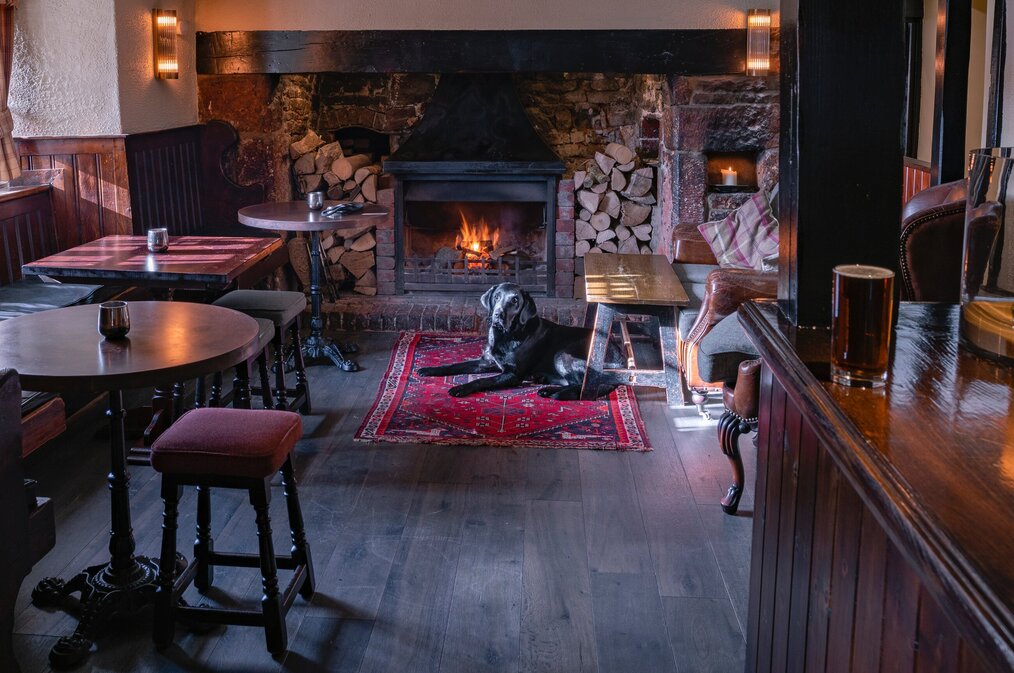What It's Really Like to Study Abroad in the UK
Wondering what it's really like when you study abroad in the United Kingdom? Here's what a former UK study abroad student wants you to know before you go.

For many students, time spent at university is among the best years of their young lives. It’s often the time we find ourselves, discover our true passions, leave our comfort zone, and explore new places. Studying abroad gives us an even greater chance at this. Whether for a few months, a year, or even for the duration of your studies, studying abroad is an opportunity to learn about a new culture, meet new people, and create memories unlike any other.
The United Kingdom is among the most popular study abroad destinations for many American students. Made up of England, Scotland, Wales, or Northern Ireland, the UK is filled with cities steeped in history. Best of all, there is no language barrier and this makes it easier to meet people, make friends, and excel at university studies. It's also a great place for high school study abroad, too!
I studied in Scotland, and as an American, I’d like to offer some insight into what it’s like to study abroad in the UK along with what I wish I had known before I arrived.
The campus experience

Depending on what you’ve chosen to study, your academic workload may vary from manageable to intense. Usually, at the beginning of your time studying abroad, professors won’t put as much pressure on you because they want you to get to enjoy the social aspects of university life.
However, although you may not have many classes, if you join a society you will definitely be spending time at uni (the UK nickname). Societies are a big part of your experience here. You can sign up for as many as your time allows and participate as often as you like.
The fee to join a society is normally no more than £5 ($6.50), which gives you a year's membership. These groups can be dedicated to sports, fandoms, hobbies, etc. Sports can range from rugby to Quidditch, and more creative clubs can range from art to cheese appreciation! These societies do weekly meetups at the university, however, they also plan activities outside uni, such as pub crawls, games, and even society balls! Societies are a great way to make friends and get to know your host campus life better.
Read more: The 8 Best Universities in England for International Students
Academics

A lack of homework, quizzes, and other ongoing assignments
You'll find that as a student in the UK, you'll be expected to work more independently than in the US. In US universities, you'll usually have a series of assignments due weekly, along with quizzes and exams throughout the semester. In the UK however, a lot of your time outside of the classroom will be spent in independent study, reading and researching the topics presented in class, but not necessarily completing assignments to be turned in. This means you'll need to be a pro at time management and setting your own deadlines because without due dates it's easy to let yourself slip. It's not uncommon in the UK to have your final grade in class based on one single paper or exam.
The grading scale
You get back your first graded exam and find you've scored a 70%. You lament the fact you got a C, until you realize the UK grading scale is not the same. In the UK, anything 70% and above is an A! The rest of the scale is as follows:
- 60-69% = B
- 50-59% = C
- 40-49% = D
- 39% and below = Fail
Don't be fooled, though. This doesn't mean it's easier to do well at university in the UK. Grading can be quite strict with A's handed out to only the most impressive work.
Read more: 10 Things You Need to Know Before Studying Abroad in Scotland
Learn more about what it's like to study abroad in London with this video from Paige Mariah.
Your living situation
Aside from your coursemates, many of the lifelong friends you will make at uni are the people you live with while studying abroad. Student halls can either be university-owned or private and typically consist of shared flats between 6-8 people with one kitchen and two bathrooms. Living in the student halls is definitely a great way to meet people and make friends, and is usually budget-friendly if you’re willing to have roommates or flatmates.
Shopping & entertainment

When it comes to grocery shopping, supermarkets in the UK offer a range of prices. Lidl, Asda, Tesco, and Aldi are more affordable while Sainsbury's, Morrisons, and Marks & Spencer are usually more expensive.
UK universities do not offer meal plans and you will have to buy and cook your own food. University campuses have cafes, however, you will have to pay to get food there. In most university cities shops and restaurants often offer student discounts, meal deals, and even free entry to clubs and events with your student card.
Read more: How to Study Abroad in England on a Budget
You’ve probably heard that the legal age of drinking in the UK is 18, which means that you’ll be legally allowed to drink while you’re studying abroad there – this may be the first time you’re allowed to do that, depending on where you’re from! However, if you don’t want to partake in drinking or that isn’t your main focus, no one will think less of you – there are always groups that enjoy these activities to differing degrees. You can always find another society to join to fill your time instead.
Getting around
The UK is well-connected by a public transportation system of buses and trains. For those aged 16-25 (26 for National Express), there are many deals for bus, rail, and the underground (metro). This is handy not only for travel between home and uni but also for day trips and weekend travel across the island.
The UK is a short hop from the rest of Europe and cheap flights can be booked through Ryanair and easyJet. Low-cost flights can be found through other carriers on Skyscanner.
History and festivals

One of the many great things about studying abroad is being surrounded by history and culture that is different from your home country's. The UK is a place steeped in thousands of years of history, spanning from prehistory and the Roman invasion in 43 AD to the Victorian age and modern-day Queen Elizabeth. In every corner of the British Isles, you can find towns and villages bursting with cultural and historical sites to explore.
Things to see and do in England
- Stonehenge: This famous World Heritage Site has been attracting tourists from all over since it was built around 5,000 years ago.
- Tower of London: Home to the Crown Jewels, the Tower of London served as a palace, prison, and fortress all in one.
- Hadrian's Wall: Almost 80 miles in length, this wall, built in 122 AD, served as a barricade protecting the northern frontier of the Roman Empire. It stretches from the North Sea to the Irish Sea and boasts countless archaeologic sites along the way.
Remember, remember, the 5th of November by joining in on Bonfire Night (also known as Guy Fawkes Night) festivities. This UK-wide holiday celebrates the failed plot to blow up Parliament in an attempt to assassinate King James I in 1605.
Read more: Festivals and events in England
Things to see and do in Scotland
- Edinburgh Castle: Perched high above the city of Edinburgh, this castle dating back to the 11th century has an intricate history that over 2 million visitors come to soak in every year.
- Loch Ness: Try your luck at spotting Nessie, the mythical monster said to inhabit the depths of Loch Ness. Even if you don't catch a glimpse of this shy beast, there are miles of beautiful hiking and biking trails around the lake to enjoy.
- Stirling Castle: Yet another beautifully maintained Scottish castle, Stirling Castle changed times eight times in a span of 50 years due to civil wars and power struggles between England and Scotland.
Ring in the New Year in Scotland by celebrating Hogmanay, the traditional and extravagant event held on December 31st.
Read more: Festivals and events in Scotland
Things to see and do in Wales
- Snowdonia National Park: Snowdonia is Wales' largest national park and covers over 800 square miles of land. This area is home to some of the country's finest flora and fauna as well as cultural heritage -- more than half of the 26,000 people living in Snowdonia speak Welsh.
- Caernarfon Castle: Constructed in 1283 in response to a war between Welsh princes, this impressive castle has 18-feet thick walls, fortified to keep out any adversary.
- St. Fagans National Museum of History: This tiny country's big history can be discovered right here in the National Museum of History.
Check out the national festival, Eisteddfod, to experience Welsh culture, language, music, and more.
Read more: Festivals and events in Wales
Things to see and do in Northern Ireland
- Crumlin Road Gaol: This 19th-century jail housed over 25,000 prisoners while operational, including political prisoners from both sides of the conflict. It now hosts public tours and paranormal investigations.
- Giant's Causeway: Walk in the footsteps of giants at Giant's Causeway, a geological marvel shrouded in fantastic myth.
- Titanic Belfast: If Titanic tops your list of all-time favorite movies or you're simply a history buff, go to the source to see where the famed ship was built and docked before its last fateful journey.
Experience traditional Irish and world music at the IMBLOC International Traditional Arts Festival in Derry-Londonderry.
Read more: Festivals and events in Northern Ireland
Cultural differences in the UK

You might be surprised to learn there are distinct cultural differences between the UK and your home country. You might even experience some culture shock, so don’t be surprised if you feel a bit disoriented for the first few weeks you’re studying abroad here.
In addition to etiquette differences – you only say hello without a hug (like in the US) or cheek kisses (like in Europe) – and language differences (be sure to understand the difference between “trousers” and “pants” before you go clothes shopping!), you’ll be surprised by the multitude of ways that people in the UK have their own distinctive approach to life.

The British are known for their sarcasm and banter. Shows like The IT Crowd, Extras, and The Office (this is what the American Office is based on!) are characteristic of the dry and sometimes uncomfortable style of humor found here. Soon enough, surrounded by your new friends and immersed in TV and movies, you'll be peppering British slang into your everyday conversations.
The honest truth about the weather

When it comes to the weather in the UK, many people have the impression that it is always rainy, cold, and cloudy. Before I moved here I was convinced I'd never see the sun and I wondered if it'd make me miserable.
Once I arrived, I learned I didn't have to worry. Life in the UK is designed with rainy weather in mind and there are a lot of cozy pubs and fun coffee shops to frequent and plenty of activities to partake in. You won't even notice the sun isn't there! And don't worry about packing an umbrella – almost no one uses one, especially among students. A rain-resistant jacket with a hood is all you'll ever need.
UK weather fast facts
- Rainiest months: October to January
- Warmest months: June (67F) to August (66F)
- Coldest months: December (45F) to March (49F)
Source: UK Met Office
Discover the UK through study abroad

If you’re thinking of studying abroad in the UK, but still feel unsure, don’t worry too much – part of the fun of studying abroad is experiencing things for the first time and being surprised by all you discover.
You’ll soon discover that being a student in the UK might vary quite a bit from what you’re used to back home but that’s no reason to stop you from studying abroad. You’ll enjoy your studies, make new friends, travel a lot (you’re a short flight away from many European cities!), and who knows, you might even come back knowing how to play the bagpipes if you study in Scotland like I did!



